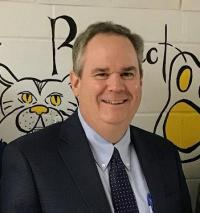by Dan French, Secretary of Education
Rowland Conference Opening Remarks
Daniel M. French, Ed.D.
Secretary of Education
October 23, 2018
Good morning. It is an honor for me to be here and to welcome you to this year’s Rowland Foundation Conference. The work of the Rowland Foundation and its Rowland Fellowship Program has been critical in building capacity for innovation in Vermont’s schools. I believe innovation across our entire education system will be necessary for us to be successful in the future.
It is an exciting time to be a student. Here are a few observations:
- For the first time in history we have the tools to ensure the personal learning aspirations of each student are at the center of the design of our education system;
- The possibilities of what students can learn today are expanding rapidly;
- The silos and structures of our traditional content disciplines are becoming blurred in favor of a more integrated approach to knowledge construction and understanding; and
- New technologies allow us to build expanded networks and communities while at the same time amplifying the individual’s ability to self-publish and create.
It is an exciting time to be a student, but it is also a challenging time to be an educator. The same forces that are creating new opportunities for students are also increasingly calling into question the structure of our traditional educational system.
Ronald Heifetz of Harvard might characterize this situation as an Adaptive Challenge. According to Heifetz:
An Adaptive Challenge demands a response that is beyond our current repertoire of solutions and asks:
“What must be given up to thrive, and
What can’t be compromised to be successful in the future?
From my perspective, what we can’t afford to compromise are the values that have informed Vermont’s progressive education system for many years. In the late 1960’s the Vermont Design for Education expressed it this way:
Education is a process conceived to benefit the learner. Central to any focus is the individual and how his learning process may be maximized. This idea is basic and provides the foundation of all other elements of quality education.
My predecessor, Rebecca Holcombe, was an eloquent and passionate advocate for equity. As a Vermont educator and educational leader, I share her commitment to equity as do all of you who have dedicated your life’s work to educating our children. The challenge before us now is not one of common values, but rather common action; can we act together now to ensure the success of our values, and our students, in the future?
“What must be given up to thrive” points to the need for us to rethink the design of our education delivery system so that each student can have his or her learning process “maximized” from a 21st Century perspective. I believe the challenge before us, as Heifetz might describe it, is whether we have the courage to adapt; to abandon structures that inhibit equity of opportunity for all of our students, while at the same time creating a new, modern education system.
The work of the Rowland Foundation has been and continues to be, an important investment in building our capacity for adaptation and innovation through teacher leadership. We are fortunate to have such capacity in our system. We now need to focus on scaling this capacity more broadly. As William Gibson the famous cyberpunk author once wrote:
The future is already here — it's just not very evenly distributed.
I hope your work today is useful in scaling and sharing innovative ideas across our state. I look forward to working with you in the coming months as we seek to design a blueprint for adapting our excellent system into a world-class education system for each Vermont student. I hope you have an enjoyable and productive conference. Thank you.
